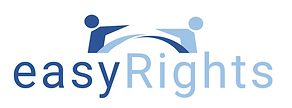Best research paper award at Open Living Lab days 2022: A success for the easyRights Living Lab
- Laura Gavrilut
- Oct 23, 2022
- 2 min read

The European Network of Living Labs was established in 2006 as a European platform for collaborative and co-creative innovation and since then has involved the users in and contributed to the innovation process. The European Network of Living Labs annually organizes the OpenLivingLab Days (OLLD), a global gathering and a space for policymakers, companies, entrepreneurs, academics, Living Lab representatives and innovators to explore, connect and work together.
This year on September 2022, easyRights participated at OLLD in Turin with the research paper: Service Co-design Fostering Migrants’ Integration - the case of easyRights Living Lab written by Maryam Karimi, María Vitaller del Olmo, Andy Peruccon, Nicola Morelli and Grazia Concilio. Our contribution received extraordinary attention by being recognized and awarded as the best research paper. The three key lessons learned from the easyRights Living Lab that we highlighted in our paper can be summarized as follows:
Living Labs as means for social integration
Our paper highlights the application of relational approaches to social integration, which can better address the complexity of our social systems and fosters more inclusive approaches to support migrant communities in accessing their fundamental rights. We learned that Living Labs present many of the necessary preconditions to take a more relational approach in social integration contexts. This is surely encouraged by, but not limited to, the engagement of several constellations of stakeholders influencing both policies, as well as the experience level of integration.
The value of Knowledge co-production through end-users centricity
In the process of the development of the easyRights Living Lab, we emphasize the human-centric, experience-based perspective of Living Labs that not only ensure a user-driven design and development of products, services, or applications but also better adoption of end-users needs. In easyRights, four groups of actors involved (people, businesses, academics, and institutions) share a similar vision and contribute to the development of new practices, also benefiting from experience and knowledge related to the digital world. The project is strongly linked with the production, diffusion, and use of knowledge as a social learning process. In the vein of knowledge production, we learned that continuous communication and negotiations between knowledge producers including migrants, refugees and asylum seekers are crucial.
A wiki-space as a driver to reinforce collective learning
The consequent emergence of effective alignment dynamics among all stakeholders and actors enables easyRights to implement further inter-institutional collaborations and consolidate strategic alliances in the local contexts. The outcomes of easyRights hackathons both in Palermo and Malaga through the creation of a wiki-space show us the improvement of migrants’ accessibility to certain rights is not only dependent on redesigning existing services but rather on collective learning and the creation of diverse knowledge including informal, experimental, and technical ones. In fact, knowledge creation occurs when collective intelligence develops through the collaboration of a large group of individuals and institutions and shares their knowledge, data, and skills for the purpose of solving societal issues. In the end, we are fully aware that a single project such as easyRights may not solve the complex set of social integration, but it highlights how the generated Living Lab contributed to outlining the preconditions for a valuable impact.
The abstract of the paper can be found here.




Comments